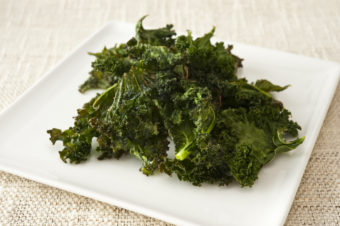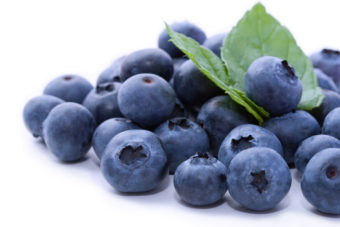5 Nutrient Dense, Low Calorie Foods to Add to Your Diet
Posted: September 7, 2018 | By: Rocio Ramos
How to start making better nutrient choices
Better health means making better nutritional choices – but what exactly does this mean? Does it mean not eating out? Staying away from sweets? Do you have to eat celery and chicken breast the rest of your life? The answer to all these questions is no. However, these types of questions are all too common from individuals who are trying to make healthier choices but don’t know where to start. You start by finding foods that are nutrient dense and low in calorie, to support health and weight loss.
What defines a food as being nutrient dense?
Essentially, a nutrient dense, low calorie food is a food source that’s going to give you the most bang for your buck. This means it’s going to be filled with a lot of nutritional in the form of vitamins, minerals, antioxidants, and amino acids while not being high in calories. For example, while red meat is a great source of nutrition, it can also be high in calories.
Nutrient dense foods should be:
High in protein – it is the most filling macronutrient that changes levels of many satiety hormones
High in volume – contain water or air that helps with satiety.
High in fiber – provides bulk and helps you feel full for longer and slow down the emptying of the stomach to increase digestion.
Low in energy density – low in calorie for its weight are typically very filling and contain water and fiber but are also low in fat.
5 Great Nutrient-dense, low calorie food choices
There are many great food choices with excellent nutrient profiles. However, when you’re starting a new diet, you want to ensure you’re eating nutrient-rich foods that are also low in calorie. Below are five great food choices for any of our Better Health programs.
Eggs – a great source of protein and fat, studies have found that eating eggs at breakfast helped increase fullness. Additionally, the yolk if full of nutrients including antioxidants.
Salmon– an excellent source of protein, this fish also contains the highest amount of omega-3 essential fatty acids, in addition to many other nutrients.
 Kale – this leafy green vegetable is known for its exceptional nutrient profile. It’s full of vitamins, minerals, fiber and antioxidants and low in calories.
Kale – this leafy green vegetable is known for its exceptional nutrient profile. It’s full of vitamins, minerals, fiber and antioxidants and low in calories.
Seaweed – this water vegetable is a great source of minerals and antioxidants. It’s especially high in iodine, calcium, iron, and magnesium.
 Blueberries – though many fruits can be high in sugar and carbs, this berry is low in calories and is rich source on antioxidants.
Blueberries – though many fruits can be high in sugar and carbs, this berry is low in calories and is rich source on antioxidants.
For more help with great food sources, be sure to check out Dr. Wallach’s Good Food/Bad Food list. You can also find recipes for all our Better Health programs at ygybetterhealth.com.
Posted in:

